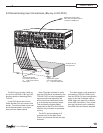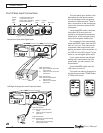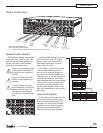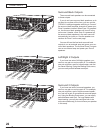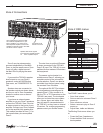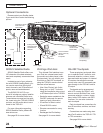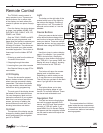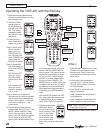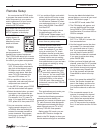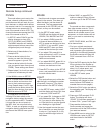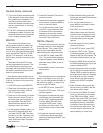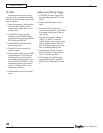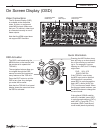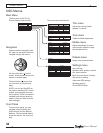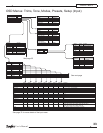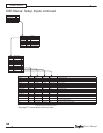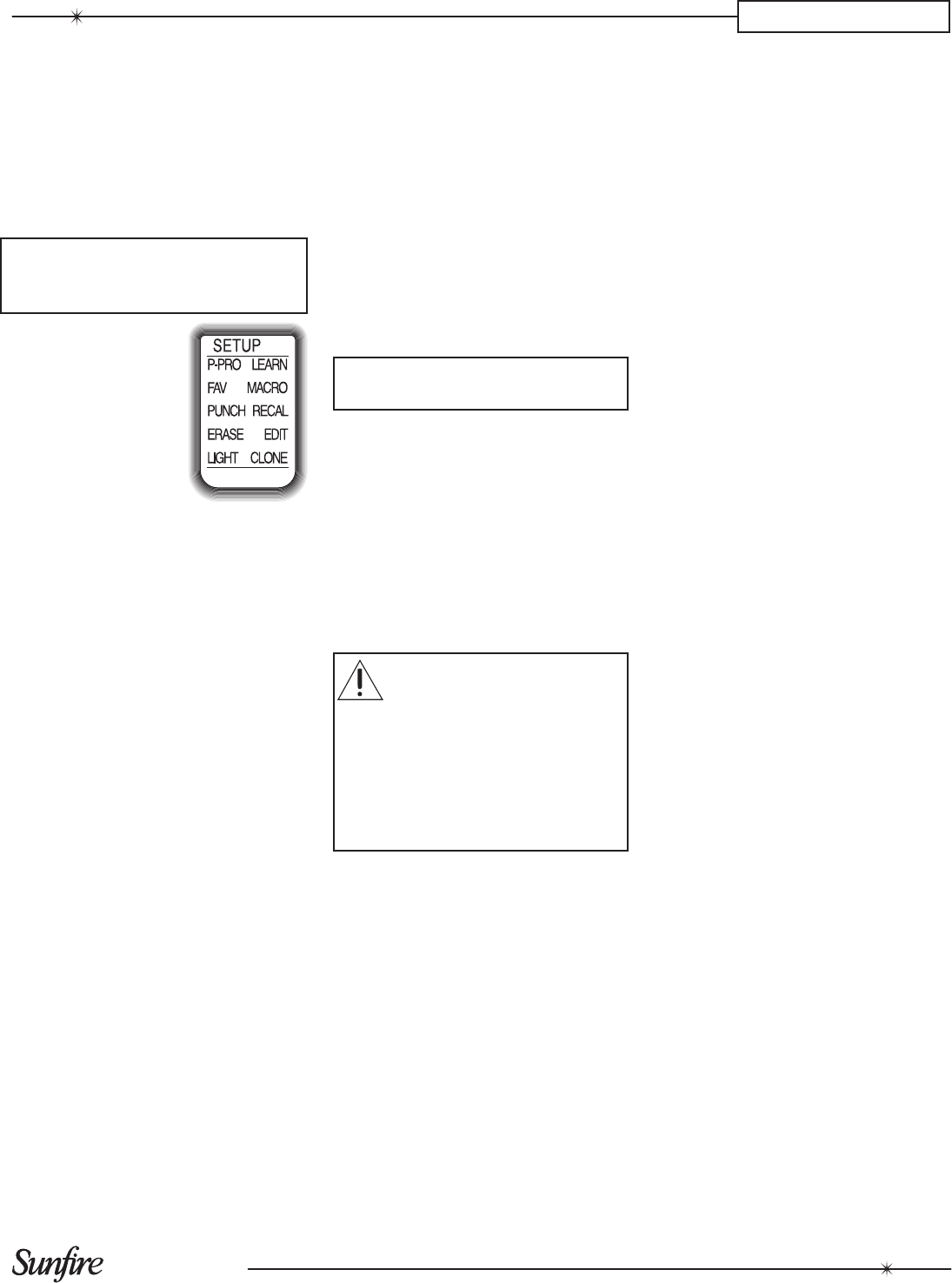
User's Manual
27
CHAPTER 3
You must enter the SETUP mode
to program the remote control for the
other components in your system,
and to customize it for your conve-
nience. There is only one way to
enter the SETUP mode:
Hold down both the MAIN and ENT
buttons for a few seconds until
SETUP appears in the display.
The SETUP
display shows 10
options. These are
described in more
detail as follows:
P-PRO
The remote is
pre-programmed to
operate many types of equipment.
The P-PRO mode allows you to enter
a 3-digit code to recall the commands
for each of your system components.
1. Find the make of your TV, DVD,
VCR, CD and other components,
then look at the tables on page
56. Make a note of the various
codes for each piece. Note that
some TV/VCR combined units
may use VCR codes, not TV.
2. Sit in a position in front of your
equipment, and make sure that all
components are turned off.
3. In the SETUP mode, press P-PRO
and the device labels will appear.
4. Select the device button you want
to program, then choose the de-
vice table you took the code from.
For example, for a TV, press TV
twice. If you want AUX to control a
VCR, press AUX, then press VCR.
5. You can now enter a code us-
ing the remote’s keypad, or UP
or DOWN. After the third digit is
entered, the remote transmits a
power command. If the compo-
nent turns on, press SAVE and
then EXIT. Go to step 7.
Remote Setup
6. If you could not nd a code which
works, hold the UP button to step
through all the codes in the table
for that device. Release UP when
your equipment turns on. If you go
past, press DOWN. Press SAVE
and then EXIT.
7. The display will change to show
the devices again, still in the
P-PRO mode. Repeat steps 4 to 7
until all your equipment is working.
8. Press MAIN to return to the main
menu from any setup mode.
9. Test the remote to see which
buttons will operate your equip-
ment. For example, if you were
trying to control your TV, check
the power, channel up and down,
and volume up and down. If some
of these buttons are not working
correctly, choose another code for
that manufacturer, or you can learn
over those not working by using
the LEARN mode.
NOTE: If you accidently "learn
over" one or more of the but-
tons which operate the TGR-
401, fear not. You can use ERASE
(see next page) to reset either the
individual buttons, or the whole
TGR-401 bank. After erasing, the
buttons will revert to their TGR-401
programming.
FAV
This mode allows you to enter your
favorite TV and radio stations.
Note that the following procedure
assumes you have already pro-
grammed your remote to operate your
TV, radio tuner and other equipment.
The keypad must already be able to
select channels on your TV or SAT,
and any TGR-401 tuner presets.
Before using FAV mode, you can
use the EDIT mode to change the
labels in the FAV display to show your
favorite station call signs or reminders.
You can also delete the labels from
unused buttons, or move all your most
favorite FAV labels to page 1.
1. In the SETUP mode, select FAV.
2. The FAV display will appear, and
you can step through ve pages
using PAGE or FAV to locate the
favorite station ID, such as HBO or
CBS for example.
3. Select the device, such as
SAT, TV or TGR-401, to learn sta-
tion commands from.
4. Use the keypad to enter the chan
-
nel number. For channels below
10, you should enter a 0 (zero)
rst. If your equipment needs it,
you may have to enter the ENT
button after the channel is entered.
If you want to add a short delay,
press PAUSE (
II
).
5. When you have nished with one
channel, press the CH UP (molded
button) to save it. Move on to the
next favorite channel and program
it in the same way. Repeat this
for all the channels and devices.
Press MAIN to return to the top
menu.
6. Now, if you press the molded FAV
button, the favorite channels ap-
pear in the display, and the ones
you programmed will take you to
your favorite channel or radio sta-
tion.
7. The commands are sent in se-
quence, for example for channel
13, rst the 1 and then the 3 are
sent. Wait a few seconds before
switching between favorites, or
your TV may receive for example,
the 1 of one button and the 2 of the
next.



